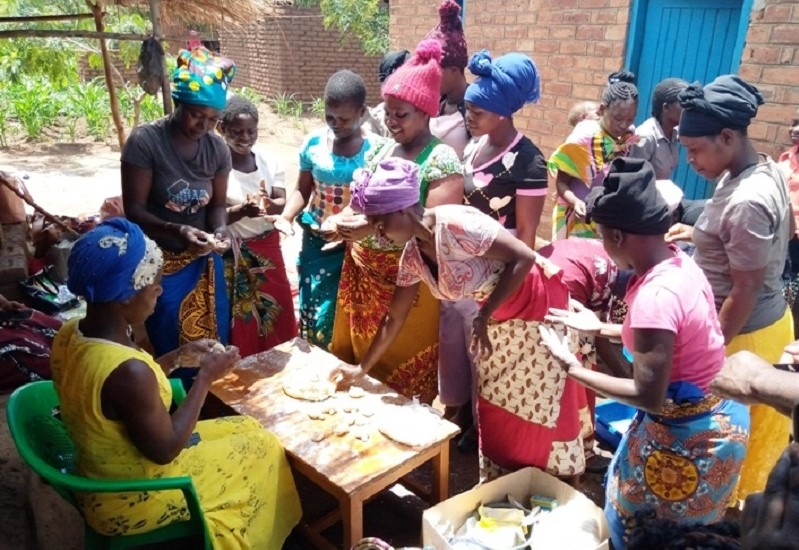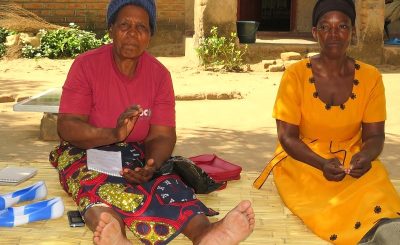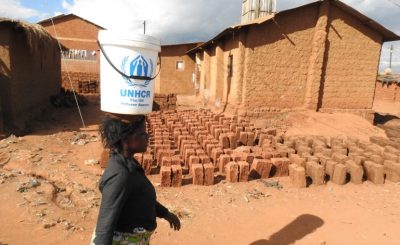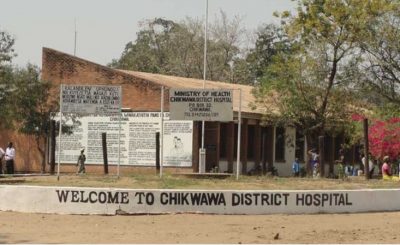By Sam Majamanda-Mana
Fyness Gwirima, 27 (not her real name), describes her life before 2017 as a series of sorrowful episodes due to what she went through at the hands of a man she describes as abusive.
Fyness’s home was characterized by all forms of gender-based violence (GBV).
“My husband could beat me; harass me verbally and unable to provide food for the family. In short, I was a victim of all the forms of abuse that exist in the world,” she explains.
Her troubled marriage emanated from teenage pregnancy she got while in Standard eight which resulted into her withdrawing from school.
However, Fyness did not immediately go into marriage because her parents were hopeful one day she would go back to school, something which never materialized.
“I gave up on the idea of going back to school after being out for two years and started my marriage life with the man who impregnated me.
“Initially, life started just on a fine note until we started encountering challenges,” Fyness narrates.
She says failure by the husband to fend for the family resulted into physical abuses.
“He could not support the household financially. I was left with the responsibility of taking care of the family.
“Life was difficult just relying on subsistence farming. We still needed to find a way to survive,” Fyness adds.
As a result, she was compelled to stop her first-born child from going to school to be assisting her in manual work at Nkando Market in Mulanje, located about five kilometres from her village.
Fyness discloses that she and her son would peel Irish potatoes in restaurants and take-away places; fetch water for the businesses as well as wash dishes for only K250.00 each per day, to enable her buy some flour and soya pieces.
All this time, the marriage was still intact and the husband, upon coming from his drinking binge, would demand food and sometimes batter her for petty reasons.
“He would provide support when he wanted and always challenged me that I couldn’t do anything or become independent.
“This began to get into my nerves because this kind of life was miserable,” states Fyness.
Fyness recollects that one day, Group Village Head Namulenga convened a community meeting which she attended, and gained her freedom in the process.
“The meeting was about an initiative that Youth Net and Counselling (YONECO) came to establish in our village.
“The objective was to empower young women economically through village savings and loans (VSL).
“The initiative was about establishing VSL groups. I liked the idea and without hesitation I expressed interest to join,” Fyness explains, a smile of pride littered across her face.
Fyness adds that two years later, she started reaping fruits from the VSL group as she saved enough money to open a small grocery shop by the veranda of her house.
“From the shop’s proceeds, I bought six pigs which I later sold and bought a cow. Now I have two dairy cattle and five goats which I attribute to the VSL group,” she says.
Presently, Fyness supplies milk to a dairy collection plant in her area and uses the profits to increase her savings at the VSL group besides paying school fees for her children.
“It is quite surprising to see how the man who used to abuse me respects me now.
“He has become very supportive in everything and we now do things together because he knows I worked hard for whatever we have and if anything, I can ask him to pack up and go,” she challenges.
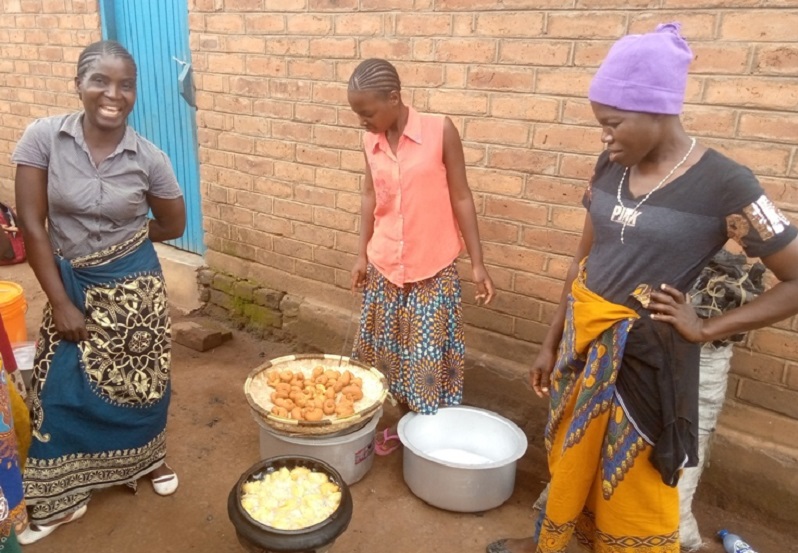
Elsewhere, Chairperson for Mwaiwathu VSL of Nthuluwe Village in Traditional Authority Mkanda in the district, 22-year-old Zione Saikonde, was left with the responsibility of raising three children aged between seven and 15 when she was widowed in 2016.
,“When I lost my husband, I was still young and some men were proposing to marry me. At first, I thought it was a good idea to marry again so that the man could take responsibility of my children.
“However, I remained skeptical for fear of ending up in the jaws of GBV. I decided to abandon the whole idea of marriage and concentrate on raising my children,” Saikonde explains.
She says she was one of the few women to join when YONECO introduced VSL groups in her village in 2017 and over the years, she has enjoyed benefits of the initiative never imagined before.
“Through the small savings and loans, I started a baking business. I bake buns locally known as Obama and white buns here.
“I used to sell them on retail, but as my business grew, some shop owners started ordering the Obamas and white buns from me and I now make a lot of money,” Saikonde waxed lyrical about her exploits.
She estimates that on a good day, she realises up to K15, 000 while on the minimum, she carts home K10, 000 which translates into K260, 000 on average in a month.
Saikonde plans to invest in the education of her children starting with the 16-year-old first born daughter who is in Form 2 at HHI Secondary School in Blantyre.
She says she also wants to build a new house to be rented out as a way of sustaining her income.
Her residence, a two-bedroom house connected to electricity, is one of her achievements from the VSL besides assets such as livestock, which she also bought with gains from the same undertaking.
YONECO Coordinator for Adolescent Girls and Young Women (AGYW) Project in Mulanje, Blessings Sabao, expresses satisfaction with the intervention.
He says saving adolescent girls and young women from GBV is one of the objectives of the youth-centred organization.
Sabao says with finances from Global Fund through Action Aid to Christian Aid in partnership with YONECO and Malawi Girl Guides Association (MAGGA), AGYW Project is implemented to reduce incidences of HIV among girls and young women aged 15-24.
She says the intervention attempts to address negative gender and socio-cultural norms; strengthen community systems and integrate interventions meant to contribute to the attainment of sustainable development goals.
“One of the AGYW project focus areas was to economically empower adolescent girls and young women through VSL groups.
“We hope when women and girls are economically empowered, they cannot indulge in transactional sex and this will also give them authority to negotiate for safer sex.
“Furthermore, it was conceived that when young women are economically empowered, they would be financially independent, thereby reducing their susceptibility to GBV,” explains Sabao.
YONECO formulated and trained 78 VSL groups in six traditional authorities of Njema, Mabuka, Mkanda, Chikumbu, Mthiramanja and Juma in Mulanje District.
A total of 1, 950 young women were involved out of whom 1, 021 have benefited by attaining economic independence.
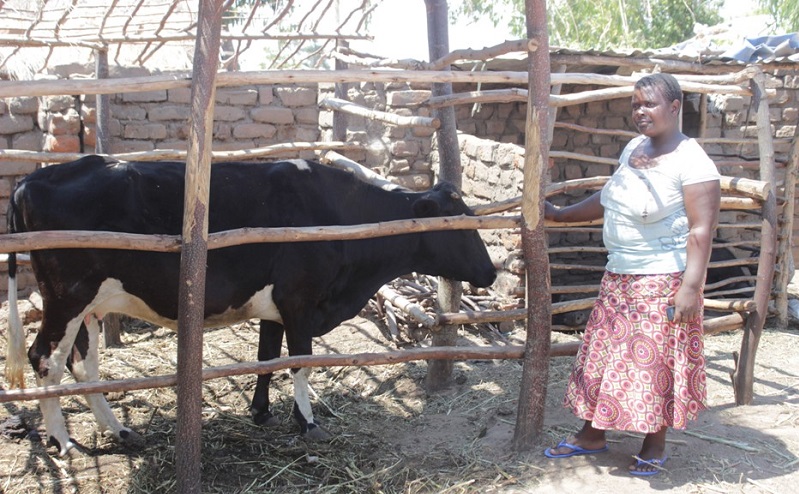
Apart from Fyness and Saikonde, some women involved in the VSL component have ventured into big profit-making businesses.
Such businesses are importing clothes from Tanzania and Mozambique, selling second hand clothes (kaunjika) as well as engaging in piggery and poultry farming.


